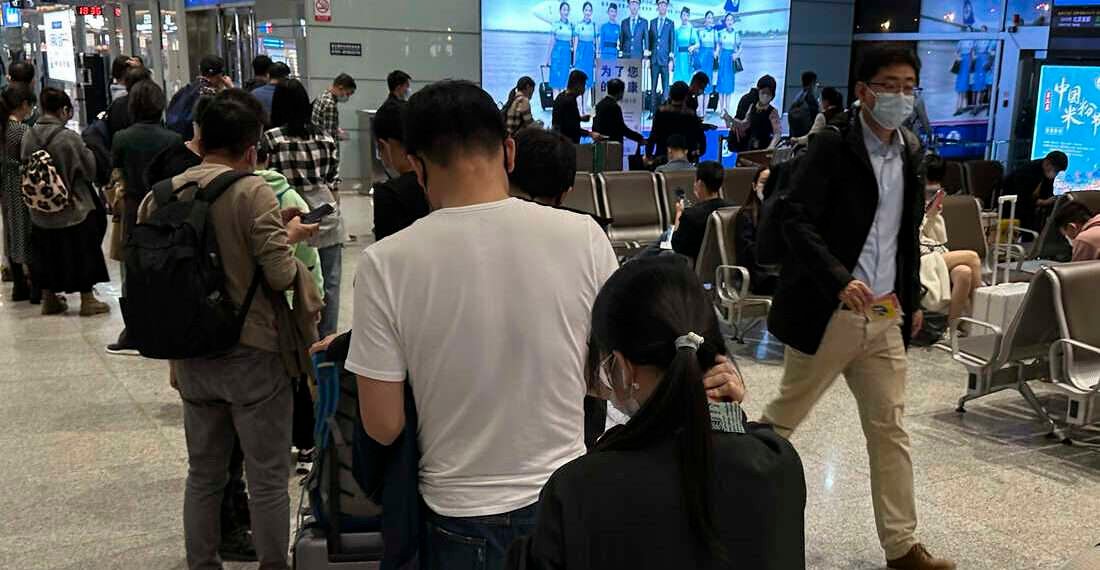China has announced that it will resume issuing passports and visas. This decision is another big step away from anti-virus controls that isolated the country for almost three years.
The announcement, made on Tuesday, December 27, 2022 adds to sudden alterations that are rolling back some of the world’s strictest anti-virus controls as President Xi Jinping’s government tries to reverse an economic decline.
Rules that confined millions of people to their homes kept China’s infection rate low but triggered public frustration and crushed economic growth.
The latest decision could send free-spending Chinese tourists to revenue-starved destinations in Asia and Europe for the Lunar New Year holiday, which begins January 22, 2023 and usually is the country’s busiest travel season.
However, it also poses a danger they might spread COVID-19 as infections surge in China.
Japan, India, South Korea and Taiwan have responded to the wave of infections by requiring virus tests for visitors from China. South Korea tests all visitors with high temperatures. South Korea has emphasized that anyone who tests positive will be quarantined at home or in a hotel for a week.
China stopped issuing visas to foreigners and passports to its own people at the onset of the COVID-19 pandemic in early 2020.
The National Immigration Administration of China disclosed that it will start taking applications on January 8, 2023 for passports for tourists to go abroad.
The agency said that it will take applications to extend, renew or reissue visas but gave no indication when they might be issued to first-time applicants.
China will “gradually resume” admitting foreign visitors, the agency stated. It gave no hint on when tourist travel from abroad might resume.
Foreign Ministry Spokesman, Wang Wenbin, opined that the changes will “create better conditions for orderly cross-border travel” and “bring more benefits to global economic development.”
China will “work with all countries” to “restore safety and stability to global industrial and supply chains and promote world economic recovery,” Wang remarked.
During the pandemic, Chinese with family emergencies or work travel deemed important could obtain passports, but some students and business people with visas to go to foreign countries were blocked by border guards from leaving.
The handful of foreign business people and others who were allowed into China were quarantined for up to one week.
Before the pandemic, China was the biggest source of foreign tourists for most of its Asian neighbors and an important market for Europe and the United States.
The government has dropped or eased most quarantine, testing and other restrictions within China, joining the United States, Japan and other governments in trying to live with the virus instead of stamping out transmission.

Some Companies Expect Impact Of Latest COVID Outbreaks To Last For Three Months
According to the American Chamber of Commerce in China, more than 70% of companies that responded to a poll this month expect the impact of the latest wave of COVID outbreaks to last not more than three months, ending in early 2023.
On Monday, December 26, 2022, the Chinese government divulged that it would scrap quarantine requirements for travelers arriving from abroad, effective January 8, 2023.
Foreign companies welcomed the change as an important step to revive business activity that is on the brink of collapsing.
Business groups had warned that global companies were shifting investment away from China because foreign executives were barred from visiting.
Also on Monday, the government downgraded the official seriousness of COVID-19 and removed it from a list of illnesses that require quarantine.
It said that authorities would stop tracking close contacts and designating areas as being at high or low risk of infection.
READ ALSO: South Korea’s President Calls For Stronger Air Defense And High-Tech Stealth Drones




















